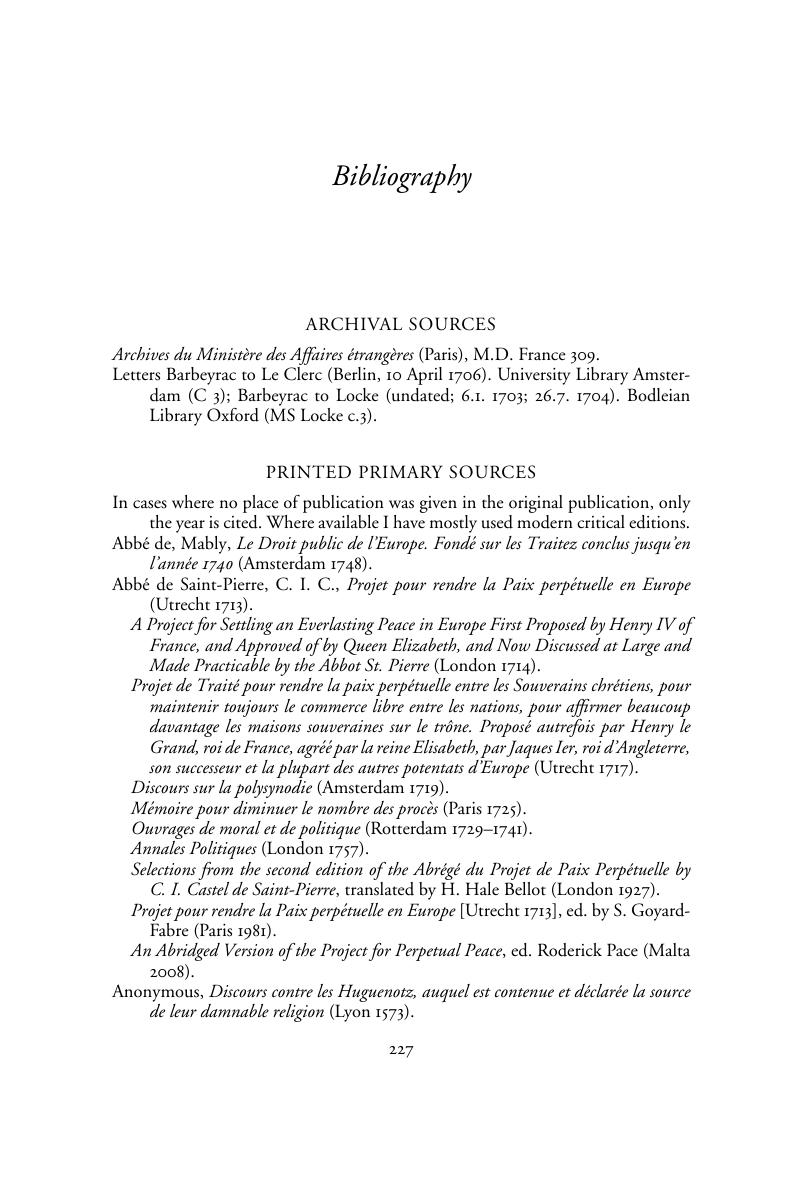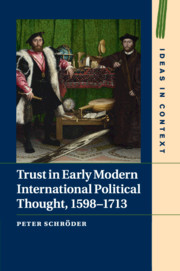Book contents
- Trust in Early Modern International Political Thought, 1598–1713
- Ideas in Context
- Trust in Early Modern International Political Thought, 1598–1713
- Copyright page
- Dedication
- Contents
- Preface
- Introduction
- Chapter 1 Alberico Gentili (1552–1608)
- Chapter 2 Plans For Universal Peace in Europe – The Limits of a Balance of Power
- Chapter 3 Jus Naturae Et Gentium – The Limits of a Juridical Order
- Chapter 4 The Struggle for Hegemony and the Erosion of Trust
- Chapter 5 The Doux Commerce and Interstate Relations
- Conclusion
- Bibliography
- Index
- Ideas in Context
- References
Bibliography
Published online by Cambridge University Press: 31 March 2017
- Trust in Early Modern International Political Thought, 1598–1713
- Ideas in Context
- Trust in Early Modern International Political Thought, 1598–1713
- Copyright page
- Dedication
- Contents
- Preface
- Introduction
- Chapter 1 Alberico Gentili (1552–1608)
- Chapter 2 Plans For Universal Peace in Europe – The Limits of a Balance of Power
- Chapter 3 Jus Naturae Et Gentium – The Limits of a Juridical Order
- Chapter 4 The Struggle for Hegemony and the Erosion of Trust
- Chapter 5 The Doux Commerce and Interstate Relations
- Conclusion
- Bibliography
- Index
- Ideas in Context
- References
Summary

- Type
- Chapter
- Information
- Trust in Early Modern International Political Thought, 1598–1713 , pp. 227 - 266Publisher: Cambridge University PressPrint publication year: 2017



